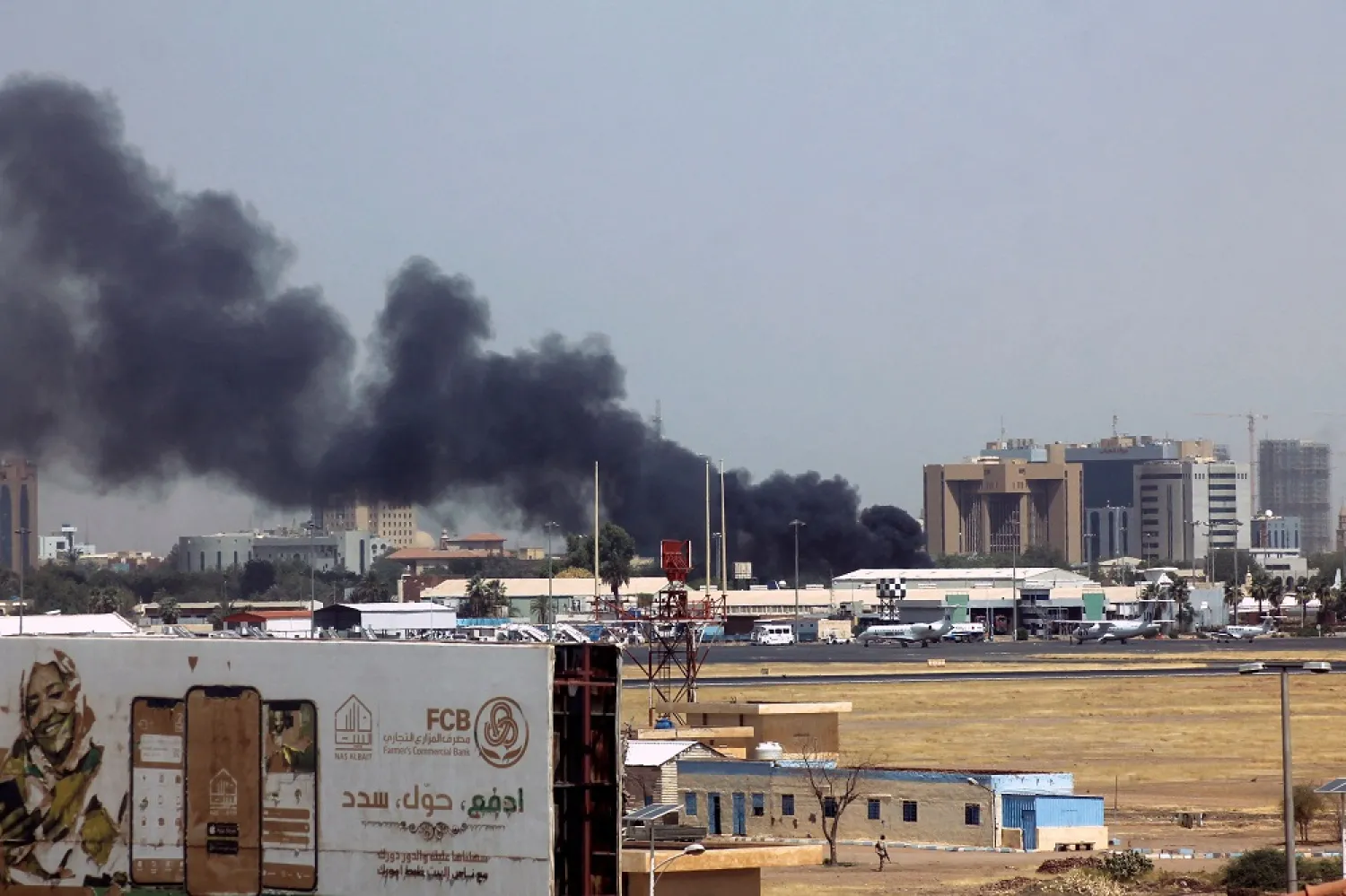Arab and international officials called for calm and dialogue on Saturday in wake of the clashes between the military and Rapid Support Forces (RSF).
Saudi Foreign Minister Prince Faisal bin Farhan bin Abdullah received a telephone call from his United Arab Emirates counterpart Sheikh Abdullah bin Zayed Al Nahyan and US Secretary of State Antony Blinken.
They discussed the situation in Sudan, stressing the need to end the military escalation and return to the framework agreement in order to restore security and calm.
The Saudi Foreign Ministry had expressed its deep concern over the developments in Sudan, calling on the military and all political leaderships to return to dialogue, show restraint and unite ranks to complete the implementation of the framework agreement.
The agreement aims to reach a political declaration that would establish political stability and economic recovery in Sudan.
The UAE's embassy in Khartoum said it was following the developments in Sudan with concern.
It underscored the UAE's firm stance that calls for ending the escalation and working on reaching a peaceful solution to the crisis, reported the state news agency WAM.
Diplomatic advisor to the UAE president Dr. Anwar al-Gargash said: "Our hearts are with Sudan. Violence only breeds violence and there can be no substitute to restraint and dialogue between the warring parties."
There can be no other choice besides the peaceful transition and opening a new chapter in the country, he added.
The Qatari Foreign Ministry urged all parties to immediately cease fighting, exercise restraint and prioritize public interests.
The Kuwaiti Foreign Ministry called for an immediate halt to the escalation and for reason and dialogue to prevail to end differences.
Secretary-General of the Gulf Cooperation Council (GCC) Jassem Albudaiwi expressed his deep concern over the developments in Sudan, calling for calm and restraint.
Secretary-General of the Organization of Islamic Cooperation Hissein Brahim Taha echoed his concern, urging a ceasefire and dialogue.
Secretary-General of the Arab League Ahmed Aboul Gheit expressed his concern over the fighting, stressing that the organization was ready to intervene with the parties.
In Cairo, the Egyptian Foreign Ministry urged the "greatest restraint" in neighboring Sudan. It called on the parties to prioritize the higher national interests.
A spokesman for the Egyptian military said the army was closely monitoring the situation.
Head of the Egyptian council for foreign affairs and former Foreign Minister Mohammed al-Orabi told Asharq Al-Awsat that both sides of the fighting in Sudan are the losers in this situation.
He said they have "taken a leap into the darkness through a military act that will not yield any fruit and for which the Sudanese people will pay dearly if the situation were to continue."
The Algerian presidency, meanwhile, called on all Sudanese parties to stop fighting and prioritize dialogue to overcome disputes
International stances
United Nations Secretary-General Antonio Guterres urged an immediate end to the fighting and the launch of dialogue to resolve the crisis.
"Any further escalation in the fighting will have a devastating impact on civilians and further aggravate the already precarious humanitarian situation in the country," he warned.
He called on Member States in the region to support efforts to restore order and return to the path of transition.
The Russian Foreign Ministry said the "unfortunate developments in Sudan were a cause of deep concern in Moscow."
It called on all parties to show restraint and take immediate measures to stop the fighting.
Blinken tweeted that he was "deeply concerned about reports of escalating violence between the Sudanese Armed Forces and Rapid Support Forces."
"We are in touch with the Embassy team in Khartoum - all are currently accounted for. We urge all actors to stop the violence immediately and avoid further escalations or troop mobilizations and continue talks to resolve outstanding issues."









